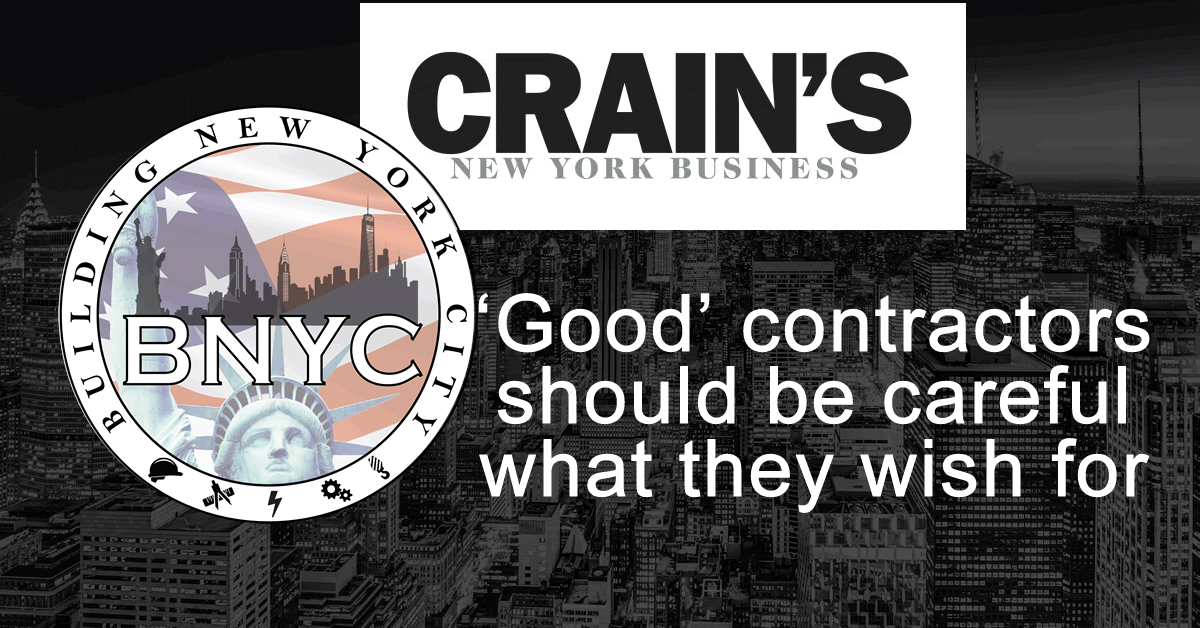A letter from Building NYC Spokesman Brad Gerstman to Crains New York Business:
How can an organization cheering the conviction of a construction company be sure its own members won’t be targeted by prosecutors?
To the Editor:
Last week Lou Coletti, president of the Building Trades Employers’ Association, wrote in an op-ed some things that he just might live to regret. In responding to my analysis of the potential damage to the construction industry emanating from the criminal conviction of Harco Construction, Coletti wrote: “Rather than having a ‘chilling effect on contractors,’ the verdict in the Moncayo case sends a powerful message to good and responsible contractors, namely, that the bad contractors who are putting workers at risk are being appropriately policed. That’s the real message to the industry and the public from this case.”
Coletti’s smugly cavalier response reminds me of the time when Long Island University’s Sherman White and the famous City College Wonder Five were implicated in a huge college-basketball betting scandal. When asked to comment, University of Kentucky men’s basketball coach Adolph Rupp claimed that gamblers “couldn’t reach my boys with a 10-foot pole.”
But Rupp was wrong. Many of his players were implicated in point-shaving during the 1948-49 season, and after an investigation, Kentucky was barred from conference play during the 1952-53 season. Things got worse as the NCAA suspended all UK sports from postseason play for that school year. NCAA executive director Walter Byers pressured other NCAA schools into not scheduling games with the UK basketball team, which ended its season before it began.
What Coletti fails to grasp—and his statistics don’t cover up the fact that infractions, accidents and even deaths occur on sites his own members are in charge of—is that revolutions always end up eating their own. What he also elides is that even the most scrupulous contractor can be caught up when prosecutors become inflamed in a feeding frenzy and the law is stretched beyond its original intent.
If the construction and building law, with all of its complexity and vagueness, is melded to the concept of strict liability, then the concept of criminal intent loses its importance and a large target is placed on the backs of all contractors, even if one of their leaders can’t see the handwriting on the wall.
Let’s not make accidents the precondition for suspecting contractors of malice. The construction industry deserves better, and all of its leaders, no matter their orientation, need to wake up to this impending danger. Partisan bickering among industry leaders will end badly for all concerned.
Brad Gerstman
The writer is an attorney, lobbyist and communications specialist, and a spokesman for Building NYC.


